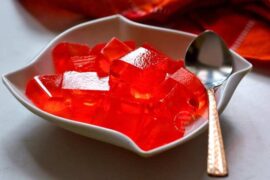An Insider’s Guide to ANZAC Day in New Zealand: Honouring Heroes with Your Family
Hello, wonderful parents of New Zealand! It’s that special time of the year again when we get together to commemorate ANZAC Day, a significant day in our hearts, a moment of national pride and reflection. But hey – let’s make it kid-friendly and engaging for the whole family, shall we? This guide is your go-to resource for including your little ones in the remembrance with grace and understanding. Ready to inspire a deep respect for our history in your kids? Let’s get started!
A Brief History of ANZAC Day
First off, let’s touch on the essence of ANZAC Day. ANZAC stands for the Australian and New Zealand Army Corps, and April 25 marks the anniversary of the Gallipoli campaign during World War I. This was where our brave ANZACs landed on the shores of Gallipoli in 1915. Although the campaign was tough, and many lives were lost, it birthed a legacy of courage, camaraderie, and indomitable spirit that we honour every year on this very day.
Understanding ANZAC Day: A Kid’s Perspective
Explaining ANZAC Day to children can be a sensitive venture, but it’s essential in nurturing a sense of national identity and respect for those who have served and sacrificed. Start simple, with age-appropriate stories or books that capture the spirit of ANZAC Day. This day is not only about remembering the fallen, but also about cherishing peace and the freedoms we enjoy, thanks to their sacrifices.
Family-Friendly ANZAC Day Activities
Engaging the kids with hands-on activities can help bring the history of ANZAC Day to life. From making red poppy crafts, which symbolize remembrance, to baking traditional ANZAC biscuits, there are meaningful and fun ways to involve everyone in the family.
Attend a Dawn Service
One of the most powerful ways to mark ANZAC Day is to attend a local dawn service. This early morning ritual represents the time when soldiers landed in Gallipoli. The solemn atmosphere provides a poignant experience, which even the young ones can appreciate in their own way. Check out local listings to find a service near you, and don’t forget to dress warmly!
Host Your Own Backyard Remembrance
Can’t make it to a dawn service? Why not host one right in your backyard! Light candles, read an ANZAC-inspired story or poem, and take a quiet moment with your family to reflect on the significance of the day. It can be just as touching and memorable as any public event.
Create an ANZAC Craft
Get the glue sticks and paint ready – it’s time for some creativity. Making red poppies out of paper or felt is not only fun but also a visual and tactile way for kids to connect with ANZAC Day. Display your poppies proudly at home or at your local community centre.
Bake ANZAC Biscuits
No ANZAC Day would be complete without the iconic ANZAC biscuit. This sweet treat has a rich history and is said to have been sent by wives and women’s groups to the ANZACs abroad because they kept well during transportation. Grab the kids, a mixing bowl, and the traditional ingredients, and let the baking (and history lesson) begin!
An ANZAC Day to Remember
As you prepare to honour ANZAC Day with your children, remember that this is not only a day of reflection, but also one of learning and gratitude. We’re incredibly lucky to be part of a community that values its history and its heroes. So let’s come together this ANZAC Day to pass on the stories, the lessons, and the spirit of the ANZACs to our younger generation. Lest we forget.
Stay tuned for more tips on how to increase your family’s engagement with ANZAC Day and deepen your understanding of this significant event in the comfort of your home or community.

5 Things Parents Should Know in Preparing for New Zealand ANZAC Day
1. The Importance of Educational Preparation
Before ANZAC Day arrives, it’s essential to educate your children about its significance. Take the time to explain the history behind the day in a way that’s accessible to their age and understanding. Use children’s books, engaging storytelling, or interactive online resources tailored to young audiences. Knowledge breeds respect, and by helping your children understand the past, they can better appreciate the present.
2. Selecting an Appropriate Service or Event
There are many events on ANZAC Day, but choosing the right one for your family is crucial. Research local dawn services, parades, and community gatherings, and consider the atmosphere and timing of these events. Dawn services tend to be solemn and reflective, while daytime parades can be more lively. Assess what kind of experience you want to share with your children and plan accordingly.
3. Discussing the Significance of Symbols
ANZAC Day is filled with symbols like the red poppy, a symbol of remembrance. Teach your children the meaning behind these symbols before the day itself. Explain why we wear poppies and what they stand for. You can even involve your children in making their own red poppies, which provides a tactile learning experience and a personal connection to the day.
4. Preparing for the Emotional Aspect
ANZAC Day can evoke a range of emotions for those who attend commemorations, including kids. Prepare your children for what they might see and hear. Let them know that it’s okay to feel sad or to ask questions. Reassure them that you are there to guide them through any complex emotions that may arise.
5. Making the Day Relevant
While ANZAC Day is steeped in history, it’s essential to make its lessons relevant to today’s world. Discuss the values of courage, mateship, and sacrifice in a contemporary context. Activities that tie in current themes of peace and freedom can help children understand why we continue to commemorate this day. Maybe engage in acts of kindness or discuss what it means to be a good citizen – acts that reinforce the spirit of ANZAC Day in the modern day.
More Engaging Ways to Honour ANZAC Day with Your Family
Participate in Local Community Events
Beyond attending the dawn service, participating in local community events can provide a sense of involvement for the whole family. Many towns hold exhibitions, performances, and educational events on and around ANZAC Day. These events are designed to be accessible for people of all ages, making them a fantastic opportunity for family bonding and community engagement.
Plan a Visit to a War Memorial or Museum
If you’re looking to make ANZAC Day a particularly memorable and educational experience, consider visiting a war memorial or museum. These places are treasure troves of information and can provide a poignant backdrop to the day’s discussions. Many museums even hold special ANZAC Day programs tailored to families and young people.
ANZAC Day Reading and Film Suggestions
In the weeks leading up to ANZAC Day, introduce your family to books and films that deal with the subjects of war, peace, and remembrance in a respectful and age-appropriate way. This can help children better understand the day itself and can serve as a starting point for family discussions about value, history, and remembrance.
Preparing for ANZAC Day is about more than just showing up to a service. By engaging in pre-day activities, discussing what’s coming, and making the day itself accessible and meaningful, you’re setting the stage for a truly impactful and respectful ANZAC Day experience. This will not only help foster an understanding of the importance of this day in New Zealand’s cultural fabric but also instil a lifelong respect for our history and heroes in your children.
Remember, ANZAC Day is a chance to reflect, to learn, and to remember together as a family. By involving your children in the preparation and observance of this significant day, you’re helping to create an informed and thoughtful next generation, ready to honour and uphold our cherished traditions. Lest we forget.
See more great Things to Do with Kids in New Zealand here. For more information see here
Disclaimer
The articles available via our website provide general information only and we strongly urge readers to exercise caution and conduct their own thorough research and fact-checking. The information presented should not be taken as absolute truth, and, to the maximum extent permitted by law, we will not be held liable for any inaccuracies or errors in the content. It is essential for individuals to independently verify and validate the information before making any decisions or taking any actions based on the articles.




